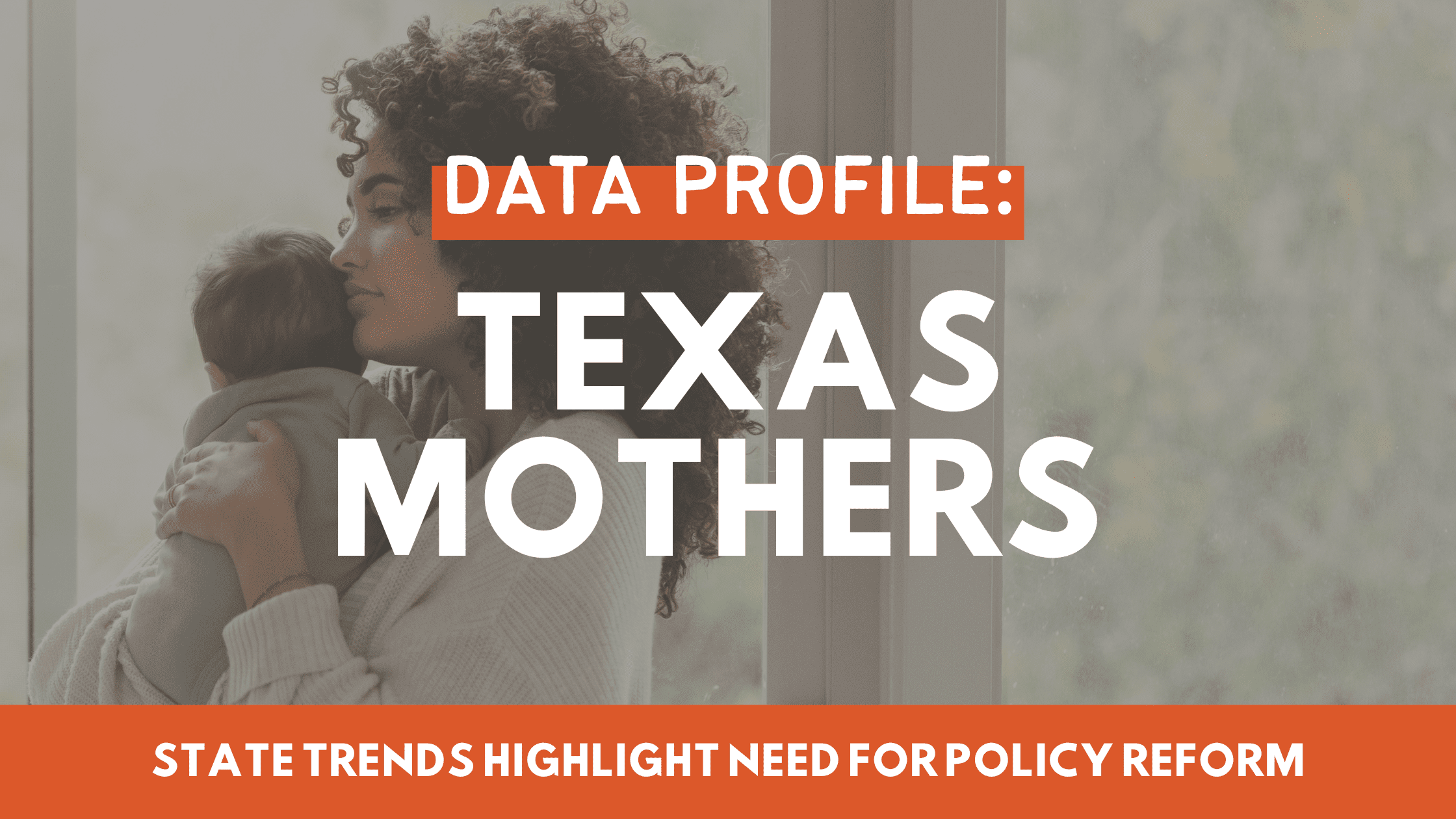Texas mothers deserve access to dignified jobs that support both their families and full participation in the workforce. Women are essential to Texas’ economy, and their workforce participation will play a critical role in shaping the state’s future economic well-being. Currently, more than 4.6 million women (16 and older) participate in the Texas workforce, a number expected to rise alongside a growing female population. By 2060, it is projected that the total population of women of all ages in Texas will reach 22.4 million. Working mothers are particularly significant within the labor force, though their participation rates vary based on a variety of factors, from the age of their youngest child to the accessibility of affordable child care. According to a recent national poll, 7 out of 10 Black, Indigenous, and People of Color (BIPOC) women caregivers or parents (70%) are concerned that their care responsibilities will impact their ability to achieve and maintain financial prosperity. The state leaders of Texas must consider the importance of supporting women and mothers in the workforce through policies that enhance their ability to balance work and family responsibilities. This includes providing access to affordable child care, flexible work arrangements, and family leave policies. By addressing these needs, Texas can ensure that women have the support necessary to fully participate in the workforce, which in turn will drive economic growth, reduce poverty rates, and foster a more equitable economy for all. Implementing such policies will not only benefit working mothers but will contribute to the overall prosperity of the state by maximizing the potential of its entire labor force.
This data profile of working moms serves as a critical resource to understand the trends and challenges faced by this significant segment of the labor force. The visualizations highlight the varying participation rates of Texas mothers, differentials in earnings between Texas mothers and fathers, and the most common occupations of Texas mothers. For instance, one visual illustrates the impact of child care responsibilities on a mother’s ability to engage in the workforce; the data show that mothers with children under the age of 6 have lower participation rates than those with older children. This underscores the necessity for supportive measures, such as affordable child care and flexible work policies, to mitigate these challenges.
Every year, Every Texan updates and publishes our Kids Count Data Book which highlights trends in child well-being across a variety of socio-economic metrics. This data profile is complimentary to that, highlighting challenges to workforce participation from the Texas mother’s perspective. This data set, along with our Kids Count Data Book, include valuable insights for policymakers, businesses, and community leaders striving to support working mothers in Texas. Approaching the challenges that mothers in Texas face from a data-driven perspective is essential to develop effective strategies that address the unique needs of working mothers. Ultimately, ensuring that Texas mothers have access to dignified jobs that support thriving families will benefit the broader economic landscape of the state.
